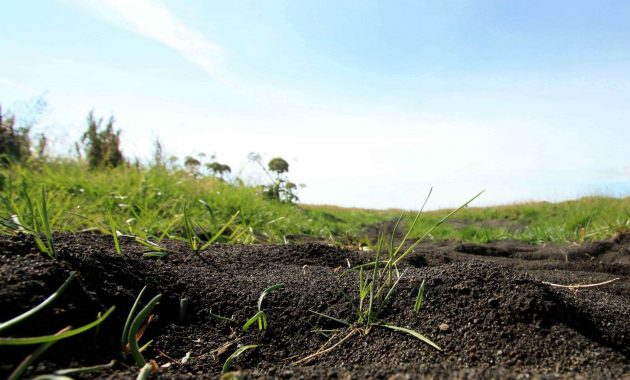Gardening is something that people have enjoyed for centuries. It can be done for sheer pleasure or it can be done to feed a family. The tips in this article will help to bring additional joy to your horticulture endeavors.
The quick and drastic changes in weather conditions can shock your plants and cause them to die. It’s important that you gradually change temperate conditions over time so that your plants can adjust. Put them out in the sun for approximately one to two hours on the very first day. Then over the next week, gradually increase the time they are in their new habitat. By the week’s end, your plants should then be ready for the big move!

Your first and best line of defense against pests is having healthy soil. The hearty plants that will grow in a garden with rich soil can resist the bugs and diseases that weak plants can’t withstand. If you want to get the best plants, begin with a soil that has hardly any chemicals, and that will bring salts.
Use annuals and biennials to enliven your flower beds. These flowers grow quickly and can be planted at any time during the year. If you want to maintain a flower garden all year or you want to add new flowers to reflect the changing seasons, annuals and biennials are for you. They can be used to fill in gaps in your garden between the perennials or shrubs so your garden looks fuller. There are many different varieties to choose from such as daisies, marigolds, impatiens, and lantana.
Soil Analysis
Do a soil analysis prior to planting. Consider getting a soil analysis and working on enrichment techniques for giving your garden a vibrant and healthy environment. The cost of the analysis will be easily offset by the benefits of a healthy and vibrant crop.
Do not mow your lawn close to the bottom. Higher grass sends roots further down, increasing lawn strength and viability. If the grass is too short that will lead to shallow roots, which will cause a brown and dried-out lawn.
Use fertilizer for maximum planting success. Manure can be effective, though you should use products which minimize pathogens. The options for fertilizing are vast and include environmentally sound choices, so no matter which you choose, just be sure to use one.
Pouring the excess water from your dinner of steamed veggies on them can help. To add acidity to the soil of your rhododendrons and gardenias, use coffee or tea grounds. Chamomile tea can be effective if you have problems with fungus in your garden. Simply sprinkle it on the affected plant.
Identify a plant that will be the most prominent object of the landscape. A good garden design will have a focal point which captivates attention. Usually this is a big plant that is somewhat different from the other plants in the garden.
Water your garden regularly and smartly. Use a type of soaker hose so that you don’t need to do individual waterings with the hose nozzle, or be refilling a watering can constantly. To protect your plants, keep the flow on the soaker down. Give it a few hours to water the plants so you have schedule freedom to tend to other matters.
You should protect the knees if you are kneeling in the garden. Many people find it difficult to bend over for extended periods of time when standing up. Kneeling is a good way to reach plants without causing back stress. You can purchase an inexpensive kneeling pad for gardening in order to protect your knees.
If you are growing plants organically indoors, you have to consider the light that they are getting. If your windows are small or receive little light due to their positioning, a plant that requires little sunlight will be more comfortable and healthy. You can also try using artificial lighting to help.
Store a few plastic bags near your garden to slip on over your dirty horticulture shoes. This allows you to keep going, getting back to your garden quickly.
If you have problem slugs in your organic garden, get rid of them naturally with a beer trap. Take a glass jar and bury it so that the soil is even with its mouth. After you have placed the jar in the soil, fill with beer to approximately one inch of the top. The slugs will be attracted to the beer, and will then become trapped within the jar.
Mulch your garden to keep the soil nourished. Mulch can protect the ground it sits upon. The soil will stay cool in high heat, preventing damage to the roots. The layer of mulch will also minimize evaporation, reducing your need to water as frequently as you would a garden without mulch. This is also a good way to control the weeds.
When setting up an organic garden, plant tomatoes three weeks apart. When you stagger your planting in this manner, your tomato plants will not be in bloom all at once, meaning you have fresh tomatoes for longer. Additionally, should something happen to during one of your harvests, your tomatoes will not all be ruined.
Using a soaker hose to water the garden is probably your best choice. These hoses let water out slowly at a regular rate. You can direct the hose to the roots of your plants, keeping the leaves dry. They don’t waste water like sprinklers and get the job done much faster than hand-watering does.
As mentioned before, gardening has been appreciated by millions of people throughout the centuries. At first, it was a necessary means of survival. Although many people today still rely on their gardens as a source of food, gardening for the sheer pleasure of it has become more common. The tips in this article will increase the satisfaction you get from gardening. Appreciate the rewards of gardening!